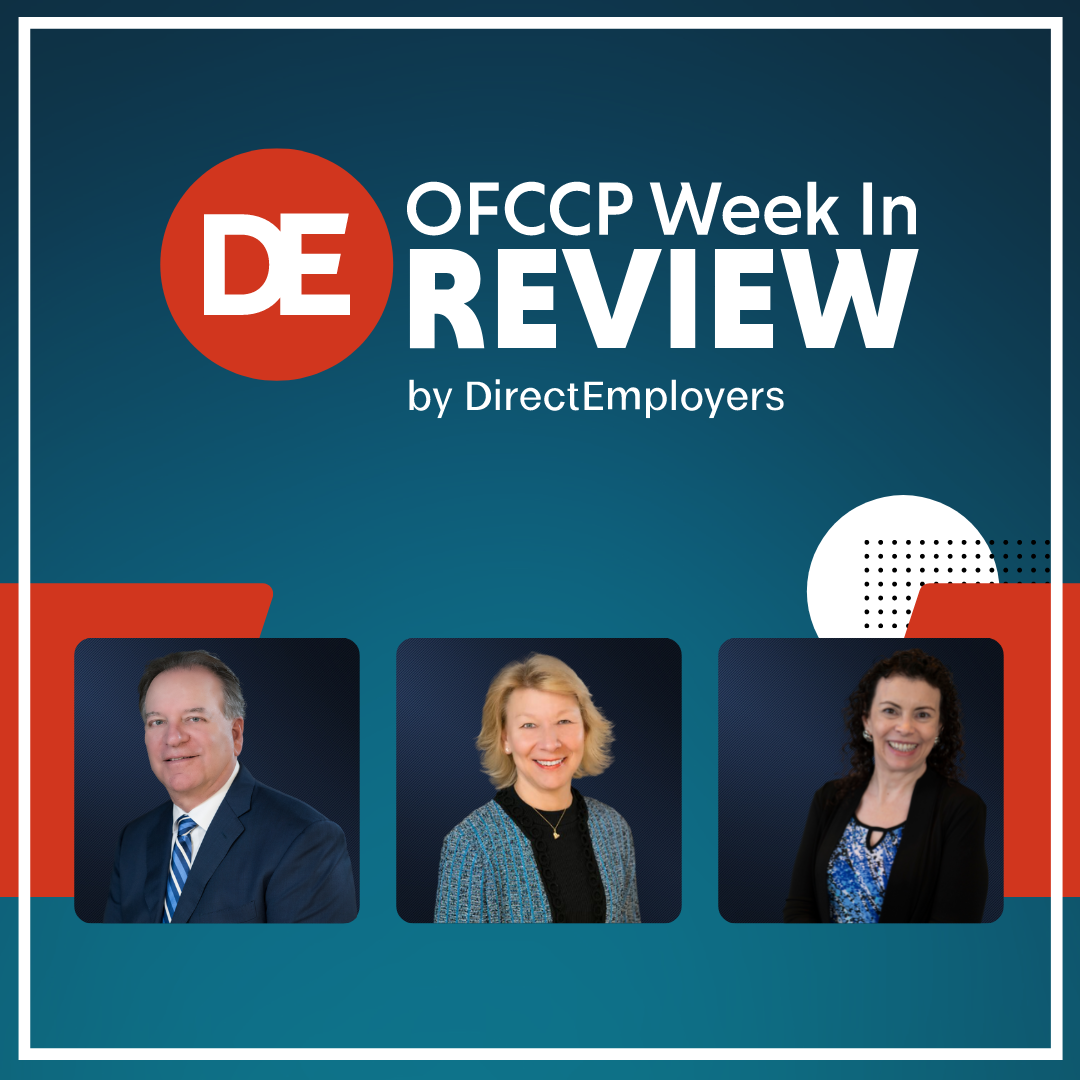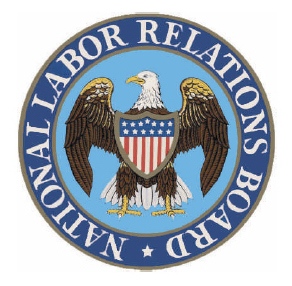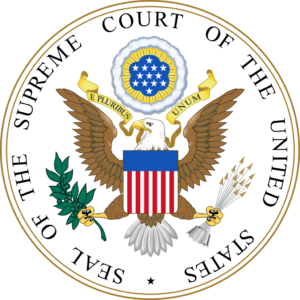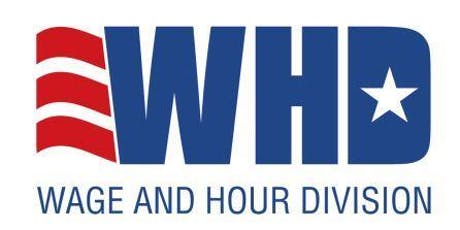
- In the Ongoing Push to Make More Companies Liable for Worker Employment Claims, California Again Seeks to Set the Pace
- U.S. NLRB Ruled Employers May Not Include Confidentiality or Non-Disparagement Provisions in Severance Agreements
- U.S. Supreme Court Held FLSA’s Overtime Exemption Does Not Apply to Highly Paid, Daily-Rate Worker
- U.S. Bureau of Labor Statistics Reported Employment of Workers with Disabilities Increased in 2022
- In Brief
- Looking Ahead: Upcoming Date Reminders
Friday, February 17, 2023: In the Ongoing Push to Make More Companies Liable for Worker Employment Claims, California Again Seeks to Set the Pace

On February 17th, California State Assemblyman Chris Holden introduced a bill in the California State Assembly that would make a fast-food restaurant franchisor liable for its franchisee’s violations of certain labor and employment laws. (The franchisor is the company (think McDonald’s) which typically owns the name/logo (intellectual property), product processes, national advertising rights, and customer service procedures). The franchisee, on the other hand, is a separate corporation that signs a contract (a “Franchise Agreement”) with the franchisor allowing the franchisee to use the name/logo, etc., and serve as the customer-facing local retail brick-and-mortar location and keep the profits…like a local McDonald’s restaurant: (only 7% of McDonald’s restaurants are company-owned and operated. The remaining 93% are franchisee-owned and operated.)
In other words, California would eliminate the distinction between franchisor and franchisee for liability purposes and seeks to render legally moot franchise agreements that would indemnify its franchisor from being legally or financially responsible for any unlawful acts of the franchisee. Assemblyman Holden’s bill is the most recent attempt by worker rights advocates to expand vertically the class of potential defendant companies from which a worker may recover financial remedies for the labor and employment violations of a local franchisee.
AB 1228 would create a new statute in California’s Labor Code that would:
- Require a fast-food restaurant franchisor to share with its franchisee all civil legal responsibility and liability for violations of certain employment laws the franchisee violates. These include California’s anti-discrimination laws; Labor Code provisions related to wages, hours, and required leaves; immigration compliance; Cal-OSHA rules and health standards; Executive Orders related to worker health and safety (including COVID-19 requirements); county or municipal standards related to worker health and safety or public health and safety; and California’s unfair competition and Private Attorneys General Act (“PAGA”) laws;
- Provide a franchisor 30 days to “cure” any violation before a worker could file a civil action against the franchisor (this deadline would extend to 60 days if the franchisor makes a written request for additional time to complete an investigation). “Curing” a violation would require abating every violation alleged, ensuring the franchisee complies with all laws stated in the violation notice, and making any injured worker whole. Should the franchisor effectuate a “cure” of the violations, the franchisor would be free from liability in any civil action;
- Void and deem unenforceable any franchise agreement that waives the legal requirement imposed by the new statute, or that requires a franchisee to indemnify the franchisor from liability; and
- Permits the franchisee to sue the franchisor if the terms of any franchise agreement result in insufficient funds to the franchisee that creates a substantial barrier to the franchisee’s ability to comply with the law or prevents the franchisee from complying with the law.
Ironically, if passed, the Holden Bill would have a crushing impact on the diversity of Minority and Female small businesses, many of which are very financially successful franchisee retail sales businesses of major companies. Especially fast-food companies. If the franchisor is going to be responsible for the operation of the franchise locations, franchisors will respond by ceasing to sell franchises and will operate “company-owned stores” so they can control the risk for which they are being held accountable.
The Holden bill is a response to what has occurred with the Fast Food Accountability and Standards Recovery Act (the “FAST” Act) which California previously passed into law but which a court has recently enjoined from going into effect. The “FAST” Act was scheduled to go into effect on January 1, 2023 and would have created a statewide Fast-Food Council empowered to impose industry-wide minimum standards on wages, working hours, and other health and safety conditions in the fast-food industry. However, to ensure passage of the “FAST” Act, the final bill removed a provision that would create joint liability for franchisor and franchisee for violations; the new bill attempts to reintroduce this concept. Furthermore, a judge enjoined the “FAST” Act from going into effect in December 2022 in light of a pending referendum funded by the fast-food industry to overturn the law by a vote of the electorate.
It is unclear whether the current bill will become law given that the prior “FAST Act” only passed following negotiations within the California Legislature which removed the joint liability provision that the current Holden bill now seeks to reinstate. However, the FAST Act and the Holden bill are only part of a larger initiative of workers’ rights advocates to expand liability for violations of worker rights to affiliated companies, whether they are parent corporations, franchisors, or joint employers. The political struggle is afoot.
Context: It was just last year that the McDonald’s Corporation’s EIGHT-YEAR litigation before the National Labor Relations Board (“NLRB”) concluded. That case began when the Obama Administration NLRB attempted to enforce joint liability on McDonald’s Corporation (the franchisor) for employment retaliation to which the NLRB alleged that McDonald’s Corporation franchisee companies were subjecting their local employees.
The NLRB’s litigation followed OFCCP’s issuance of FAQs related to “single entity” analyses that emphasized the fact that all corporate entities were federal contractors subject to complying with affirmative action requirements when they share ownership, directors, HR services, or other evidence of control with an avowed federal contractor. Even now, recently proposed USDOL Wage and Hour Division regulations under the Fair Labor Standards Act pertaining to independent contractor status (as discussed previously here) is attempting to expand liability not just as to the entity controlling a worker’s work environment, but also as to the entity that merely reserves that right.
Also, remember that the NLRB last September 2022 issued a proposed rule expanding the definition of “joint employer” for purposes of liability under the National Labor Relations Act (as discussed previously here). All these efforts make apparent what employers should already know: the pursuit of worker rights advocates to ensure at the federal level that no corporate relationships allow an entity to avoid liability for violations of law is becoming more and more a reality.
Tuesday, February 21, 2023: U.S. NLRB Ruled Employers May Not Include Confidentiality or Non-Disparagement Provisions in Severance Agreements
Decision Latest in a Series of Political Flips
Dissenting Republican Member Wrote Reversing Precedent Was “Speculative” & Unnecessary

Section 7 of the NLRA guarantees employees “the right to self-organization, to form, join, or assist labor organizations, to bargain collectively through representatives of their own choosing, and to engage in other concerted activities for the purpose of collective bargaining or other mutual aid or protection,” as well as the right “to refrain from any or all such activities” (see 29 U.S.C. § 157). Section 8(a)(1) of the NLRA makes it an unfair labor practice (ULP) for an employer “to interfere with, restrain, or coerce employees in the exercise of the rights guaranteed in Section 7” of the Act (see 29 U.S.C. § 158).
According to the Board majority, simply offering employees a severance agreement with confidentiality or non-disparagement provisions constitutes a ULP in violation of Section 8(a)(1) of the NLRA because it requires them to “broadly give up their rights” under Section 7 of the Act. The NLRB’s majority (all Democrats) observed in its 12-page decision that such employer offers are themselves attempts to deter employees from exercising their statutory rights, at a time when employees may feel they must give up their rights in order to get the benefits provided in the agreement.
“It’s long been understood by the Board and the courts that employers cannot ask individual employees to choose between receiving benefits and exercising their rights under the National Labor Relations Act,” said NLRB Chairman Lauren McFerran in a press release. She added that the decision “upholds this important principle and restores longstanding precedent.”
In addition, the NLRB unanimously held in McLaren Macomb that the employer violated the NLRA by executing the furloughs without negotiating with the applicable union and by offering the severance agreements directly to the workers.
Dissent Concluded Reversing Precedent Was “Speculative” & Unnecessary
However, in Republican member Marvin Kaplan’s view, the unanimous portions of the ruling were sufficient to resolve the matter at hand. Therefore, his colleagues had no justification to go further and reverse precedent, Kaplan stated in his 3-and-a-half-page dissent. “Nevertheless, my colleagues have used this case to overrule extant law that was consistent with finding the violation in this case in order to change the law, in effect, for cases not involving the facts presented in this case,” he wrote.
Kaplan, who served on the Board that issued the Baylor and IGT decisions, wrote that the majority’s reversal of those rulings was “based on an incorrect, or speculative, interpretation” of them. “And pure speculation does not provide a reasonable justification for overruling Board precedent,” he wrote. “None of the cases cited by my colleagues found that an employer, never having suggested any proclivity to violate the Act, violated the Act by proffering a severance agreement that could possibly be interpreted as limiting Section 7 rights,” he added.
Wednesday, February 22, 2023: U.S. Supreme Court Held FLSA’s Overtime Exemption Does Not Apply to Highly Paid, Daily-Rate Worker
Employer Ignored “Salary-Basis” test

How We Got Here
The employee typically worked 84 hours a week on an off-shore oil rig. His employer paid him on a daily-rate basis, with no overtime compensation. Accordingly, his compensation consisted of his daily rate times the number of days he had worked in a given two-week pay period. The employer argued that because he earned over $200,000 annually, the employee was exempt from the FLSA because he qualified as “a bona fide executive” under the FLSA at 29 U. S. C. §213(a)(1). Under the applicable WHD regulations, an employee is considered a bona fide executive if the employee meets three distinct tests: (1) the “salary basis” test, which requires that an employee receive a predetermined and fixed salary that does not vary with the amount of time worked; (2) the “salary level” test, which requires that the preset salary exceeds a specified amount; and (3) the job “duties” test.
Two Exemption Rules Implement “Bona Fide Executive” Standard
The Secretary of Labor has implemented the bona fide executive standard through two separate and slightly different rules, Justice Kagan explained in the 20-page majority opinion (See 29 C.F.R. §541). First, the “general rule” – at 29 C.F. R. §541.602(a) – considers employees to be “executives” when they are “[c]ompensated on a salary basis” (salary-basis test); “at a rate of not less than $455 per week” (salary-level test); and carry out three listed responsibilities – managing the enterprise, directing other employees, and exercising power to hire and fire (duties test).
Second, a different rule – at 29 C.F. R. §541.604(b) – addresses HCEs who make at least $107,432 or more per year ($100,000 per year prior to January 1, 2020). The HCE rule relaxes only the duties test, while restating the other two (“salary-basis” and “salary-level”). Whether the employee in this case was an “executive” exempt from the FLSA’s overtime pay guarantee turned solely on whether he was paid on a salary basis, Kagan explained.
Lower Court Rulings Differed
The federal district court for the Southern District of Texas agreed with the employer that the employee was compensated on a salary basis. But, the full Court of Appeals for the Fifth Circuit reversed, deciding that he was not paid on a salary basis, and accordingly, could claim the FLSA’s protections.
Majority opinion
The critical question was whether the employee was paid on a salary basis under 29 C.F. R. §541.602(a), the majority opinion explained. While a worker may be paid on a salary basis under either §602(a) or §604(b), the employer acknowledged that the employee’s compensation did not satisfy §604(b)’s conditions. Thus, the court turned to the text of 602(a), which excludes daily-rate workers, the majority stated.
The role of §604(b) confirms the Court’s reading of §602(a), Justice Kagan further noted. The analysis under §604(b) (for a compensation scheme to meet the salary basis test) is all about daily, hourly, or shift rates. Reading §602(a) to also cover daily- and hourly-rate employees would subvert §604(b)’s strict conditions on when their pay counts as a “salary.” By contrast, when read as limited to weekly-rate employees, §602(a) works in tandem with §604(b), with §604(b) taking over where §602(a) leaves off. Thus, the two rules do operate independently.
The majority also found that the HCE Rule is not merely a “simple income level” test for the purposes of the FLSA bona fide executive exemption.
Two Dissents
Justice Brett Kavanaugh wrote a 5-page dissent, joined by Justice Samuel Alito. According to Kavanaugh, because the employee performed executive duties, earned at least $100,000 per year, and received a guaranteed weekly salary of at least $455 for any week that he worked, he was not legally entitled to overtime pay under the regulations. He also asserted that the WHD regulations may be inconsistent with the FLSA because the statute “focuses on whether the employee performs executive duties, not how much an employee is paid or how an employee is paid.”
Justice Neil Gorsuch issued a separate, 2-page dissent stating that the employer’s appeal should have been dismissed for procedural reasons.
Thursday, February 23, 2023: U.S. Bureau of Labor Statistics Reported Employment of Workers with Disabilities Increased in 2022

For the 11-page report, BLS used data collected as part of the Current Population Survey (CPS), a monthly sample survey of about 60,000 households that provides statistics on employment and unemployment in the United States. The U.S. Department of Labor’s Office of Disability Employment Policy sponsors the collection of the data on persons with a disability.
Highlights from the report, which includes six tables (Table A and Tables 1-5) include:
- Half of all persons with a disability were age 65 and over, nearly three times larger than the share for those with no disability. (See table 1.)
- Across all age groups, persons with a disability were much less likely to be employed than those with no disability. (See table 1.)
- The unemployment rate for persons with a disability was about twice as high as the rate for persons without a disability. (See table 1.)
- In 2022, 30 percent of workers with a disability were employed part time, compared with 16 percent for those with no disability. (See table 2.)
- Employed persons with a disability were more likely to be self-employed than those with no disability. (See table 4.)
In Brief
Tuesday, January 31, 2023: U.S. House Education and the Workforce Committee Adopted Oversight Plan
Committee Intends to Focus on EEO-1 Survey Pay Data Collection & OFCCP’s Policies on Religious Organizations

Other priority areas include conducting oversight:
- to consider the extent to which the Biden administration has “weaponized” federal policies in favor of unions and “to ensure it moves back to its appropriate role of administrating the law impartially.” This consideration includes the NLRB’s regulatory proposals on joint employers and changes to representative election procedures.
- of the Labor Department’s Wage and Hour Division’s regulatory and enforcement activity, including its proposals to revise the independent contractor and overtime pay rules under the Fair Labor Standards Act and prevailing wage requirements under the Davis-Bacon and Related Acts.
Wednesday, February 22, 2022: USDOL WHD Announced Dates for Online Seminars on Prevailing Wage Compliance

While seminar attendance is free, registration is required.
Looking Ahead:
Upcoming Date Reminders
December 2022: OFCCP’s (now overdue) target date for its Final Rule on Rescinding Trump-era Religious Exemption (RIN: 1250-AA09)
December 2022: U.S. DOL WHD’s (now overdue) target date to publish a Notice of Proposed Rulemaking to Analyze Public Comments on its proposed rule regarding Nondisplacement of Qualified Workers Under Service Contracts (RIN: 1235-AA42)
December 2022: U.S. OSHA’s (now overdue) target date to publish its Final Rule on Occupational Exposure to COVID-19 in Healthcare Settings (RIN: 1218-AD36) (OSHA submitted this Final Rule to OMB on December 7, 2022)
December 2022: U.S. DOL’s OASAM’s (now overdue) target date to publish Proposed Rule on “Revision of the Regulations Implementing Section 188 of the Workforce Innovation and Opportunity Act (WIOA) to Clarify Nondiscrimination and Equal Opportunity Requirements and Obligations Related to Sex” (RIN: 1291-AA44)
February 2023: U.S. DOL WHD’s target date for its Final Rule on Updating the Davis-Bacon and Related Acts Regulations (RIN: 1235-AA40)
March 2023: OFCCP’s target date for its Notice of Proposed Rulemaking to Require Reporting of Subcontractors (RIN: 1250-AA15)
March 2023: OFCCP’s target date for its Final Rule on Pre-Enforcement Notice & Conciliation Procedures (RIN: 1250-AA14)
March 2023: OFCCP’s target date for its Final Rule on “Technical Amendments” to Update Jurisdictional Thresholds & Remove Gender Assumptive Pronouns (RIN: 1250-AA16)
Wednesday, March 1, 2023: Deadline to submit reply comments in response to initial comments on NLRB’s proposed changes to NLRA regulations (previous
February 16 deadline extended) – https://www.regulations.gov/commenton/NLRB-2022-0002-0001
Friday, March 3, 2023: Deadline for contractors to inform OFCCP that they are incorrectly included on the agency’s updated “non-objectors list” as to a reporter’s Freedom of Information Act (FOIA) request for EEO-1 consolidated Component 1 Survey data (previous February 17 deadline extended) – https://www.dol.gov/agencies/ofccp/submitter-notice-response-portal
Tuesday, March 14, 2023: Deadline to submit comments on nine federal agencies’ joint proposed rule on Partnerships with Faith-Based and Neighborhood Organizations – https://www.regulations.gov/commenton/VA-2023-VACO-0006-0001
Monday, March 20, 2023: Comments due on OFCCP’s proposed modifications to its complaint intake process – https://www.regulations.gov/commenton/OFCCP-2022-0005-0001
Monday, March 20, 2023: Deadline to submit comments on FTC proposal to ban employers from implementing most worker non-compete agreements – https://www.regulations.gov/commenton/FTC-2023-0007-0001
April 2023: OFCCP’s target date for its Notice of Proposed Rulemaking to “Modernize” Supply & Service Contractor Regulations (RIN: 1250-AA13)
Wednesday, April 12, 2023: Comments due on the Office of Management & Budget’s “Initial Proposals for Updating Race and Ethnicity Statistical Standards” – https://www.regulations.gov/commenton/OMB-2023-0001-0001
Wednesday, April 12 – Friday, April 14, 2023: DEAMcon23 Chicago (Registrations open now; Agenda now available here!)
Sunday, April 30, 2023: Deadline to apply for 2023 HIRE Vets Medallion Award Program – https://www.hirevets.gov/
May 2023: U.S. DOL WHD’s target date for its Notice of Proposed Rulemaking on Defining and Delimiting the Exemptions for Executive, Administrative, Professional, Outside Sales and Computer Employees (RIN: 1235-AA39)
May 2023: U.S. DOL WHD’s target date for its Final Rule on Employee or Independent Contractor Classification Under the Fair Labor Standards Act (RIN: 1235-AA43)
August 2023: U.S. NLRB’s target date for its Final Rule on Standard for Determining Joint-Employer Status (under the NLRA) (RIN: 3142-AA21)
August 2023: U.S. NLRB’s target date for its Final Election Protection Rule (RIN: 3142-AA22)
THIS COLUMN IS MEANT TO ASSIST IN A GENERAL UNDERSTANDING OF THE CURRENT LAW AND PRACTICE RELATING TO OFCCP. IT IS NOT TO BE REGARDED AS LEGAL ADVICE. COMPANIES OR INDIVIDUALS WITH PARTICULAR QUESTIONS SHOULD SEEK ADVICE OF COUNSEL.
SUBSCRIBE.
Compliance Alerts
Compliance Tips
Week In Review (WIR)
Subscribe to receive alerts, news and updates on all things related to OFCCP compliance as it applies to federal contractors.
OFCCP Compliance Text Alerts
Get OFCCP compliance alerts on your cell phone. Text the word compliance to 55678 and confirm your subscription. Provider message and data rates may apply.


